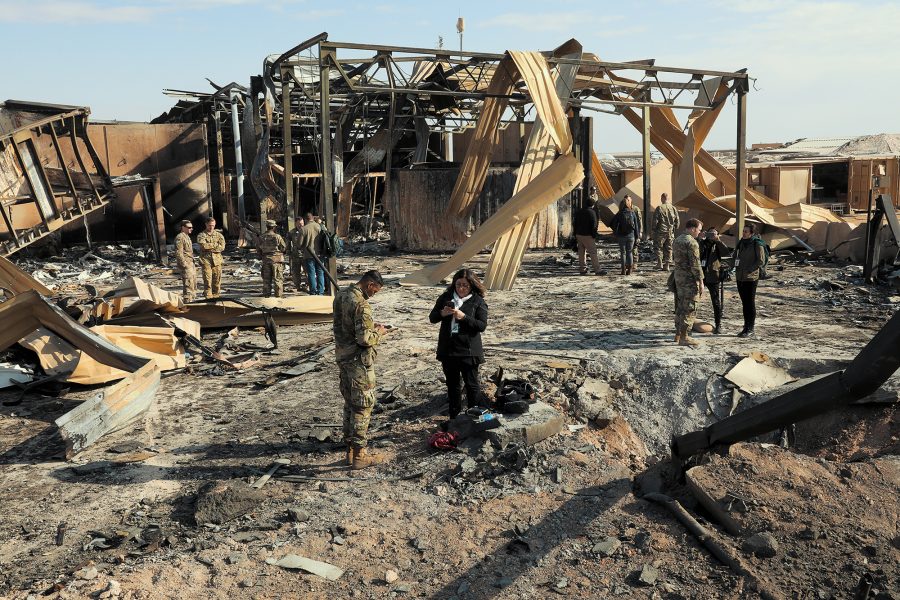The Pentagon now says 50 service members have been diagnosed with traumatic brain injuries following the Jan. 7 ballistic missile attack on al-Asad AB, Iraq.
Of the 50 troops, 31 were treated in Iraq and have returned to duty. Eighteen were transported to Germany for treatment, with nine of those returned to the United States for continued treatment. One was taken to Kuwait and has returned to duty.
The updated tally is a “snap shot in time” and could change, the Pentagon said in a statement. The Defense Department initially said no one was injured in the attack and later updated that number to 34.
During the night of Jan. 7, Iran launched a volley of ballistic missiles at al-Asad and another base near Erbil. Pentagon officials have said that an early warning system allowed personnel at the base to disperse and take cover, avoiding serious bodily injuries or deaths.
“The low-level commanders, airmen, and soldiers on the ground, made some tremendous decisions in a time of great ambiguity” to take protective measures “in rapid order,” USAF Maj. Gen. Alex Grynkewich, the deputy commander of Combined Joint Task Force-Operation Inherent Resolve, said Jan. 22.
Senior leaders have said Iran was clear in its intent to harm Americans.
“I believe, based on what I saw and what I know, is that they were intended to cause structural damage destroy vehicles, and equipment and aircraft, and to kill personnel,” Chairman of the Joint Chiefs of Staff Gen. Mark Milley said shortly after the attack.
